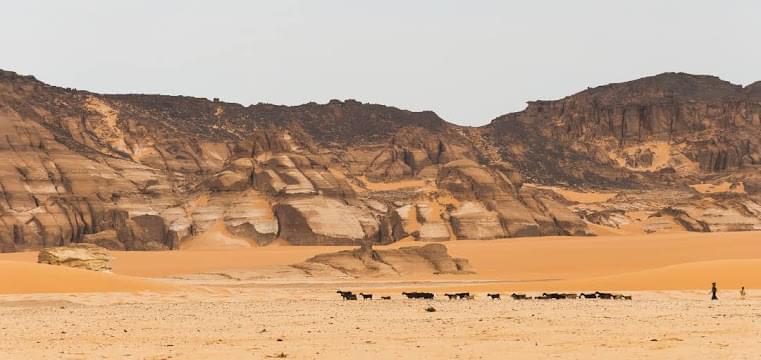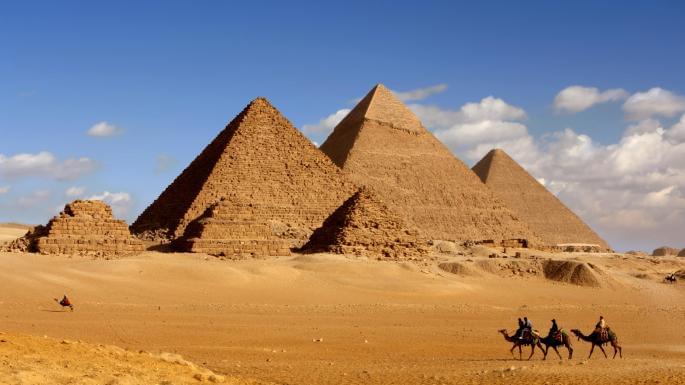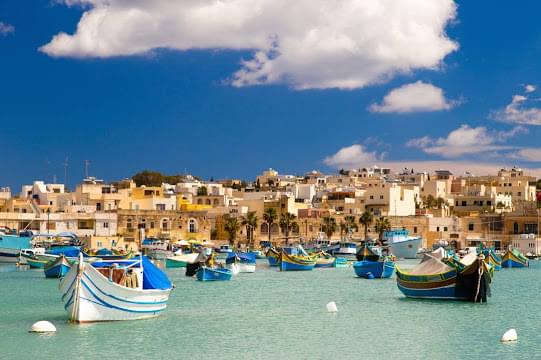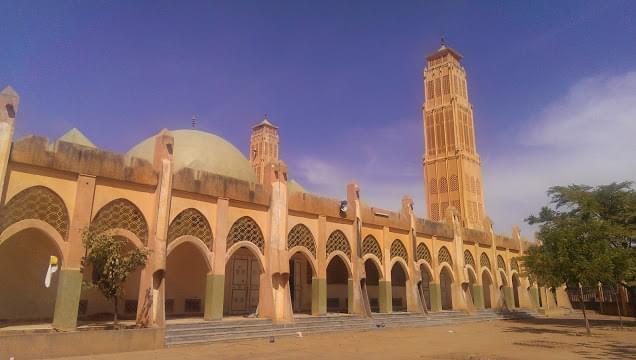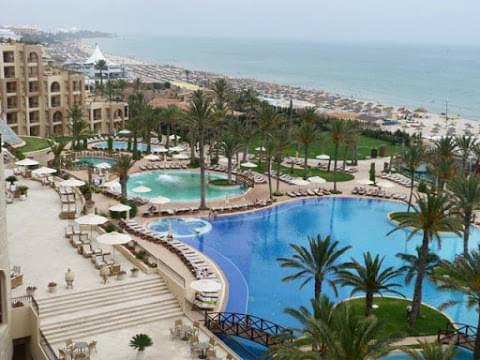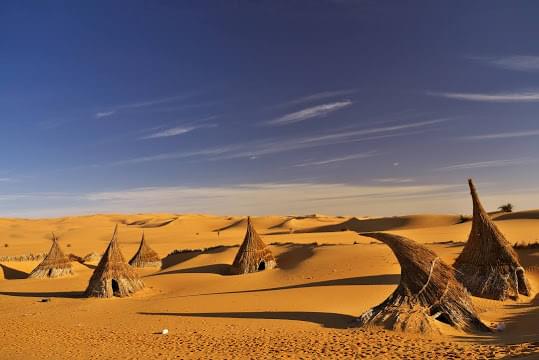
Libya 🇱🇾
Last updated:
Libya is part of Africa with main city at
Tripoli. It's usually 🌤️ 22.09 °C in Libya with a rainfall of 🌧 3.07 mm. Internet speed in Libya is on average 0.7 Mbps. In Libya you drive on the right side. Its Developing country with a
population of 6M people. The main currency is Libyan Dinar. The languages
spoken are Arabic. Automatic teller machines are rare in Libya. Current travel safety advice is Do not travel. Get other useful information like socket plugs, SIM cards and emergency numbers.
👍 Developing 🌤️ ~22.09 °C 🌧 ~3.07 mm 👨👩👦👦 6M people
Libya Travel Advice
🛡️ Travel safety
Do not travel
We've reviewed our advice for Libya. We haven't changed the overall level of our advice, do not travel. If you're in Libya and it's safe to do so, leave as soon as possible. Monitor the website and social media of airlines and airports for available flights. We can’t advise you on the safety of departure options. Due to the ongoing unrest, our ability to provide consular services is severely limited. Contact the Embassy in Rome if you require consular assistance.
We continue to advise:
Do not travel to Libya due to ongoing fighting, unstable security, and the high threat of terrorist attack and kidnapping.
Issue date: Libya Weather
🌤️ Temperature
🌧 Rainfall
Libya Essential travel details
🔌 Plugs
Libya uses 230V, 50Hz with sockets and plugs Type C and Type L.
🌐 Languages
The languages that are typically spoken are
Arabic
Money in Libya
💱 Currencies Used
Libya uses the Libyan dinar (symbol: ?.?), code LYD.Banknotes come in denominations of 50, 20, 10, 5 and 1 dinars. Dinar is subdivided into 1000 dirhams. Coins come in denominations of 500, 250, 100 and 50 dirhams.
🏧 ATMs
Automatic teller machines are rare in Libya. Your best bet is to look for them in large cities and community places.You do not need a chip & PIN card to use an ATM — your standard magnetic card will work fine.
Calling in Libya
📡 Internet
Internet speed in Libya is on average 0.7 Mbps.
WiFi coverage in Libya is very low. It's quite hard to find one.
📱 Phones
You can buy a SIM card for about 16.18 LYD, which includes 1 GB of data plan. You can choose from 2 telecoms: Al Madar or Libyana.
Libya uses GSM mobile networks .
If you don't want to buy SIM card in Libya upon arrival, make sure to check the roaming charges with your telecom provider before your departure so there are no surprises when you return home.
📞 Calling
To call Libya, dial +, then 218 (the country code for Libya), then the area code (without the initial 0) and the local number.
For local calls within Libya, start with the area code (with the initial 0). In the case above area code is 21 .
Driving in Libya
🛣️ Road rules
In Libya you drive on the right side. Most cars have manual transmission (stick).
Unless otherwise posted, the speed limits for cars and motorcycles are as follows: 130 km/h (80 mph) on motorways, 130 km/h (80 mph) on expressways and 50 km/h (31 mph) in all built-up areas.
🆘 Emergency
Police
115
Ambulance
113
Fire department
110
Libya country map
Libya travel details
It's important to consider getting travel medical insurance to ensure you're covered in case of unexpected medical emergencies.
For just $42, you can get coverage for 4 weeks, providing peace of mind and financial protection while you're away from home.
Fly to Libya
✈️ best flight deals
from1000+providers
from1000+providers
Stay in Libya
🛏️ hottest hotel deals
upto20%OFF
upto20%OFF
Insurance in Libya
🏥 travel insurance cover
$1.45 / day
$1.45 / day
Money in Libya
💳 access money easily
د.ل.0.000ATM fees
د.ل.0.000ATM fees
Drive in Libya
🚙 best car rentals
د.ل.0.000cancellation
د.ل.0.000cancellation
Useful Information
Find other useful infromation when you are travelling to other country like visa details, embasssies, customs, health regulations and so on.
